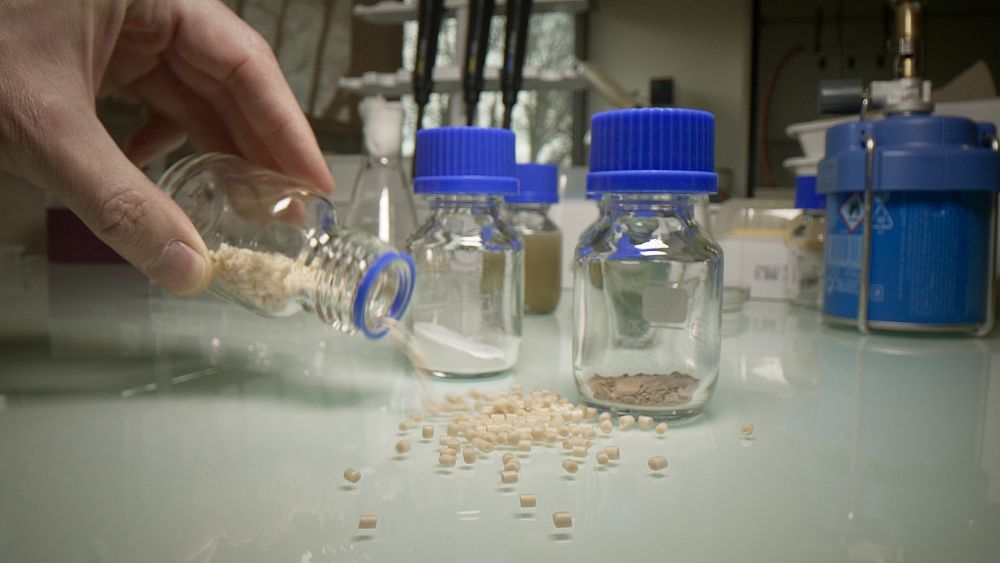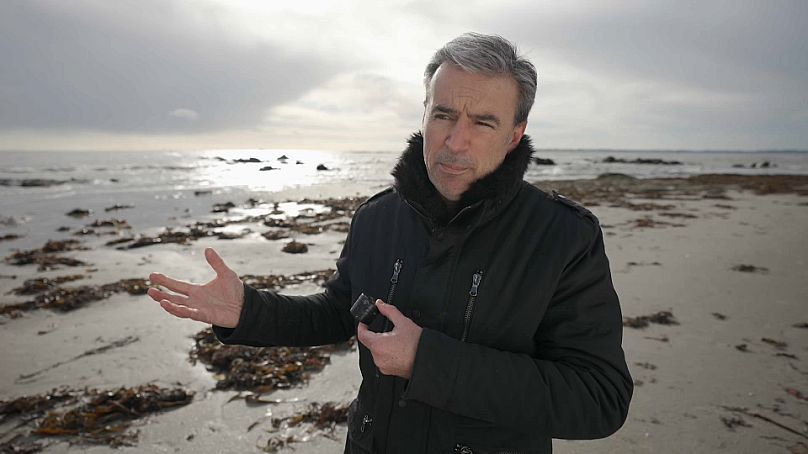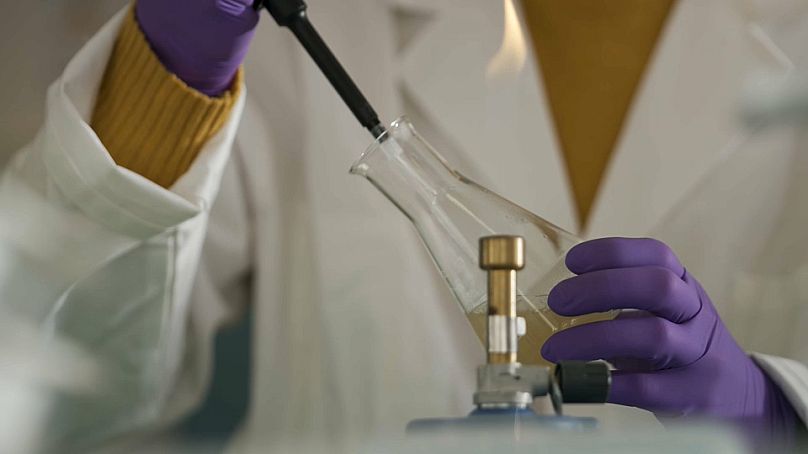
Plastic pollution is becoming an increasingly pressing issue, and the use of fossil fuels in traditional plastics is a major concern. However, bioplastics, which are derived from natural sources such as agricultural crops, have faced criticism for their reliance on arable land usage — and often questionable biodegradability.
In Lorient, in western France, Ocean met with Stéphane Bruzaud, a researcher at the Université Bretagne Sud on a mission to find a better solution.
An expert in biobased and biodegradable plastics, he’s leading a local research team that works with partners across Europe in the EU-funded Nenu2PHAr research project, developing new biopolymers using microscopic marine organisms.
«We can see these small pieces of plastic that we have just found on the beach. And the problem is that these plastics will last for a very long time. They will gradually decompose into very small plastic particles, which are called microplastics, and these microplastics, besides polluting our environment, have also now entered our food chain.»

«As part of the Nenu2PHAr project, we are working with marine bacteria that we have collected off the coast of Brittany, on molluscs such as cockles or clams. We use the bacteria with algae, and in particular, microalgae that are grown at the CEA in Cadarache, and thanks to that we can extract starch and sugars,» Stéphane Bruzaud explained.
«This combination of sugar extracted from microalgae and marine bacteria makes it possible to develop fermentation processes that allow us to produce so-called bio-based plastics, meaning plastics made from renewable resources — with sugar from microalgae and marine bacteria taken from the seafloor — to produce biodegradable plastics which have actually been shown to rapidly biodegrade in the marine environment.»

«Biodegradable plastic materials, in my opinion, are only intended to replace plastics in some niche markets. We shouldn’t aim to develop biodegradable plastics for all intents and purposes. Collecting and sorting the waste remains the first priority.»
«As for biodegradable plastics, they provide a solution when their use is justified — when they are used in direct contact with the environment, the marine environment in particular, or for uses in which plastics will inevitably end up in the environment,» he added.

